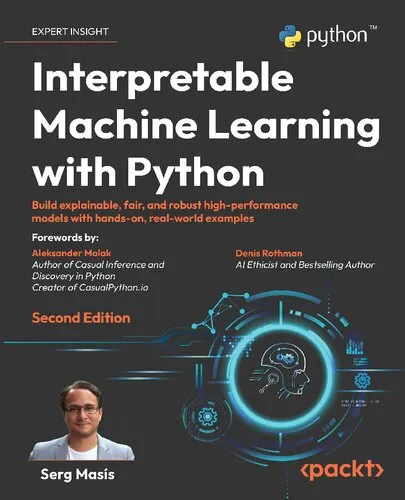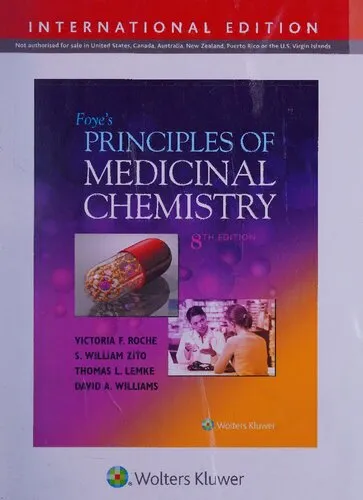Finite Difference Methods for Ordinary and Partial Differential Equations: Steady-State and Time-Dependent Problems (Classics in Applied Mathematics)
4.7
Reviews from our users

You Can Ask your questions from this book's AI after Login
Each download or ask from book AI costs 2 points. To earn more free points, please visit the Points Guide Page and complete some valuable actions.Related Refrences:
Introduction to "Finite Difference Methods for Ordinary and Partial Differential Equations: Steady-State and Time-Dependent Problems"
"Finite Difference Methods for Ordinary and Partial Differential Equations" by Randall J. LeVeque is a cornerstone in the fields of numerical analysis and computational mathematics. Recognized as part of the prestigious "Classics in Applied Mathematics" series, this book provides an in-depth foundation for understanding and solving differential equations using finite difference methods. It is an invaluable resource for researchers, professionals, and students alike who wish to delve into the mathematical algorithms that underpin much of modern science and engineering.
Addressing both steady-state and time-dependent problems, this book serves as a practical guide to developing reliable and efficient algorithms for differential equations. It focuses on iterative and numerical techniques that are essential for simulating complex physical processes, including fluid dynamics, heat transfer, and wave propagation. Written in a clear and accessible style, the book balances theoretical rigor with practical examples, making it an evergreen reference across diverse domains.
Detailed Summary of the Book
The book begins with a foundational introduction to finite difference methods and gradually progresses into more advanced topics, ensuring that readers from varying levels of expertise can follow along. The content is split into manageable sections that detail the formulation, implementation, and analysis of finite difference schemes.
Core topics include:
- Formulation of finite difference approximations for ordinary and partial differential equations (ODEs and PDEs).
- Analysis of truncation errors, stability, and convergence – critical components of numerical methods.
- Application of explicit and implicit methods for solving time-dependent equations.
- Efficient solution strategies for steady-state problems.
- Introduction to iterative solvers and their role in computational simulation.
- Techniques for boundary conditions, grid generation, and adaptive mesh refinement.
Throughout the book, mathematical derivations are supported by computational perspectives, enabling readers to implement these methods in practical coding environments. The inclusion of illustrative examples and exercises further enhances the learning experience, providing hands-on opportunities to master the discussed techniques.
Key Takeaways
By reading this book, you will gain:
- A solid understanding of finite difference methods and their applications to solving ODEs and PDEs.
- Insights into the theoretical underpinnings of numerical stability and how it impacts computational error.
- The ability to analyze and implement numerical schemes for steady-state and dynamic systems.
- Exposure to advanced concepts such as numerical dispersion and artificial viscosity.
- Practical strategies for building robust algorithms that maintain accuracy across various problem domains.
Armed with these skills, you will be well-prepared to tackle cutting-edge challenges in applied mathematics, engineering, and other technical fields.
Famous Quotes from the Book
"Numerical stability is not just a desirable feature—it is an absolute necessity."
"Finite difference methods serve as both a scaffold for understanding and a tool for computation."
"The art of numerical analysis lies not just in solving problems but in understanding their behavior."
Why This Book Matters
This book stands out because it bridges the gap between theory and practice, making complex mathematical concepts approachable and practical. In an era where computational simulations drive innovation in science and engineering, a deep understanding of finite difference methods is more important than ever.
Randall LeVeque's meticulous exposition provides tools that are not only academically significant but also directly applicable to real-world problems. Whether you are modeling natural phenomena, designing engineering systems, or exploring mathematical theory, this book equips you with the expertise required to excel.
Furthermore, the book emphasizes critical thinking over rote computation, fostering a mindset that allows readers to adapt methods to new challenges as they arise. This adaptability makes the book a timeless resource and a must-read for anyone involved in computational mathematics.
Free Direct Download
You Can Download this book after Login
Accessing books through legal platforms and public libraries not only supports the rights of authors and publishers but also contributes to the sustainability of reading culture. Before downloading, please take a moment to consider these options.
Find this book on other platforms:
WorldCat helps you find books in libraries worldwide.
See ratings, reviews, and discussions on Goodreads.
Find and buy rare or used books on AbeBooks.
1197
بازدید4.7
امتیاز0
نظر98%
رضایتReviews:
4.7
Based on 0 users review
Questions & Answers
Ask questions about this book or help others by answering
No questions yet. Be the first to ask!
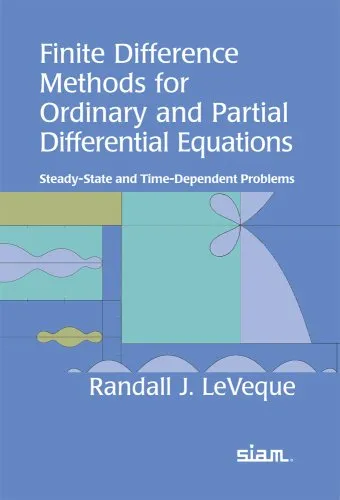
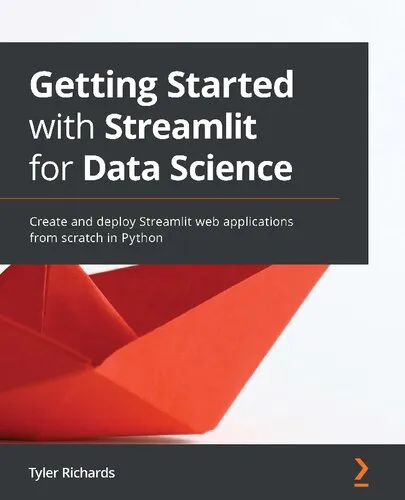

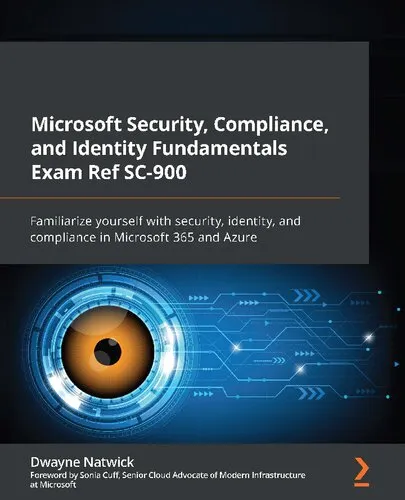

![The Ultimate iOS Interview Playbook: Conquer Swift, frameworks, design patterns, and app architecture [Team-IRA]](https://s3.refhub.ir/images/thumb/The_Ultimate_iOS_Interview_Playbook__Conquer__29925.webp)

